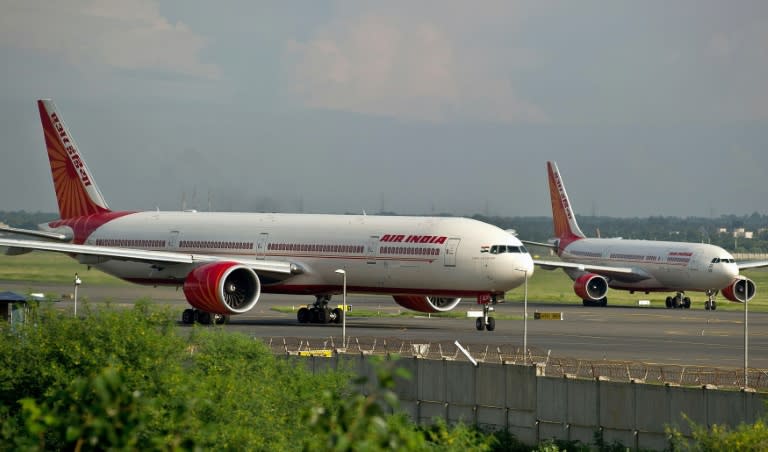India approves plan to sell stake in state-owned Air India

India's cabinet approved Wednesday plans to sell a stake in state-run Air India as the debt-saddled carrier struggles to compete with low-cost rivals in one of the world's fastest-growing airline markets. Finance Minister Arun Jaitley announced cabinet had given "in principle approval for the disinvestment" of the flagship carrier, which was nationalised just after India's independence nearly 70 years ago. Jaitley will head a group tasked with progressing the sale, including the amount of divestment and other matters related to Air India's assets, debts and related hotel companies. Proposals to privatise the airline have been floated by past governments but failed to make any ground. Once the country's monopoly airline, Air India has slowly lost market share to new private players, especially low-cost carriers. Passengers tired of delays, cancelled flights and a generally poor service record have flocked to a suite of new competitors offering cheaper and more reliable routes in India's booming aviation market. In January, Air India held a 12.8-percent market share -- behind low-cost carriers SpiceJet and market leader IndiGo, which dominates with a 42-percent chunk of the business. Air India received a $5.8 billion bailout package from the government in 2012, and ran losses for nearly a decade until posting a profit last year. "Air India's privatisation has been long overdue," said Amber Dubey, partner and India head of aerospace and defence at global consultancy KPMG. "Every year's delay has only cost taxpayers money and eroded Air India's market value." - 'Cannot be revived' - The group tasked with progressing the sale must consider Air India's "unsustainable debt", how much to sell-off and potential bidders for the airline, cabinet said in a statement. It will also look at "hiving off" certain assets to a shell company and offloading three profit-making subsidiaries. Unions representing Air India's employees have been the fiercest opponents to the sale, with one demanding the government waive debts to "keep flying the flag of national carrier" instead of offloading it to a private buyer. Analysts have long cited Air India as a problem for the government which is dependent on taxpayer funds. The government had ordered the loss-making airline to turn around its fortunes, prompting the carrier to slash employee overtime and other expenses. Jitender Bhargava, a former Air India executive director who was written a book about its decline, urged the government to part ways entirely with the airline. "If the government holds even a minor stake, the propensity to meddle, to do backseat driving can't be curbed," he told AFP. "I am convinced that Air India can't be revived or survive in its current state. It is a good move." India has the world's fastest growing passenger airline industry, expanding at an annual rate of around 20 percent. Experts say India's aviation sector holds vast untapped potential, with just 100 million of its 1.2 billion people taking to the skies last year. Low-cost airlines are rushing to expand their fleets to take advantage of that growth, encouraged by a fall in fuel prices that last year pushed several private operators into profit for the first time.

 Yahoo Finance
Yahoo Finance 